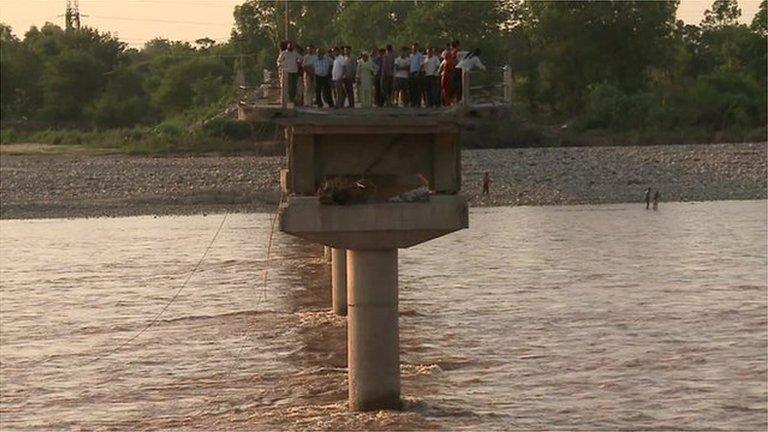Pakistan floods: The villagers trapped and praying
- Published
Andrew North joins rescue workers in Pakistan's Punjab province
Rescuers in Pakistan are trying to reach hundreds of thousands of people cut off by floods which have destroyed homes and large areas of farmland. The BBC's Andrew North joined emergency teams in one of the worst-hit areas in Punjab province.
The first sign of human life in Kotla Nek Ahmed village is the angular tips of three tombstones.
They poke from the waters of what otherwise seems to be a big lake.
The boat driver keeps a respectful distance as he navigates towards a half-submerged clump of trees.
Somewhere out there are dozens of people marooned by Pakistan's late-monsoon floods and rescuers from the local Punjab provincial government are making another foray to find them.
Many here in this district along the banks of the river Jhelum stayed behind when their villages started flooding, reluctant to leave homes and precious livestock - and praying it wouldn't get any worse
But now they have found themselves trapped, with the authorities increasingly concerned about the possibility of more flooding because of a new rain-fed surge coming downriver from across the border in India.
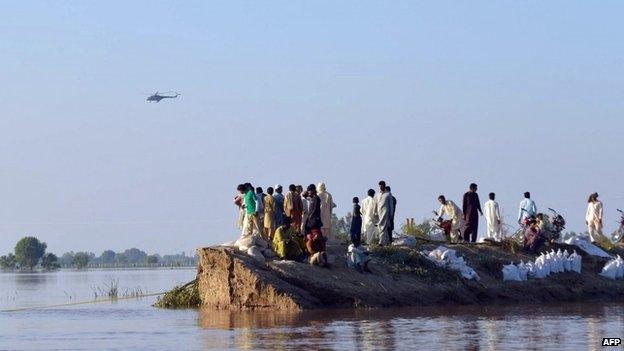
They have been urging people to evacuate for miles around.
Beyond the clump of trees, the outlines of small dwellings start to appear, but perched on what are now islands.
Two men stripped to the waist, against the still bath-like heat, wave at the boat from their little outcrop.
When the rescue team arrives, the men greet them with what look like smiles of relief and warm handshakes.
Footage from around Punjab on Monday shows homes submerged and helicopter rescues
They start to try on the bright orange life-jackets they are handed. Then they turn to call their wives and children from inside.
A grandmother comes too and takes charge of the young ones fighting for the best place in the boat.
But then the men suddenly take off their life-jackets and step out of the boat.
What is clearly an old conversation resumes, with the two women remonstrating with their husbands.
There are gestures and frustrated tones. But then the men turn away and walk away towards a few goats and cows tethered near the houses.
One of the rescue team shakes his head knowingly. "They don't want to leave the livestock," he says.
The team pushes off, the children quiet now as the boat heads towards a big protective dyke where people displaced by the floods have been setting up temporary shelters.
Another boat arrives at the same time. An elderly farmer steps off with his daughter and two grandchildren.
"I've never seen a flood like this," he says. "We've lost our cattle and all our crops have been destroyed. Now I'm standing here and I've got nothing."
- Published8 September 2014
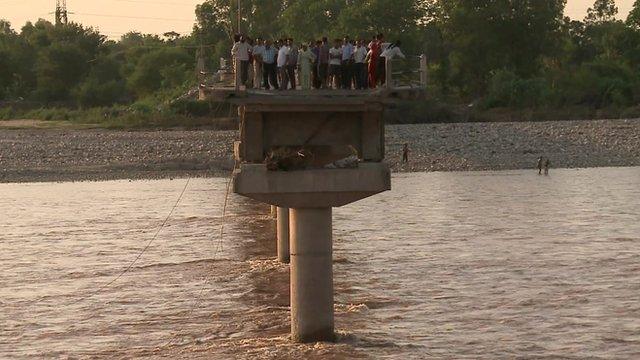
- Published9 September 2014
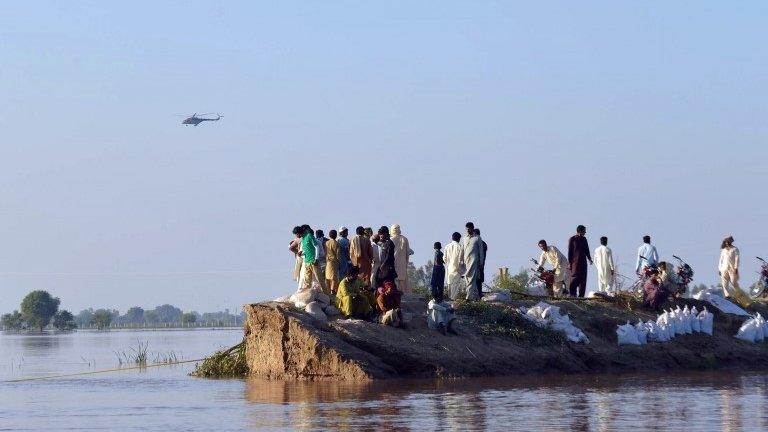
- Published8 September 2014
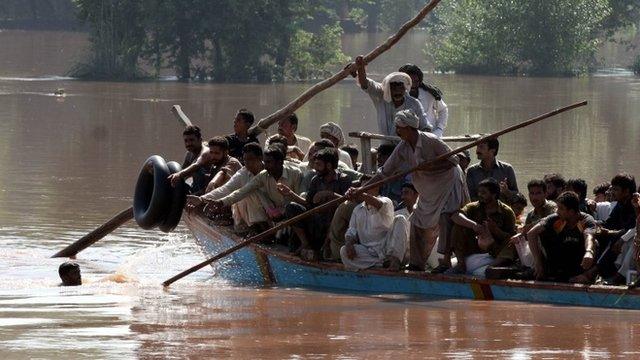
- Published8 September 2014
